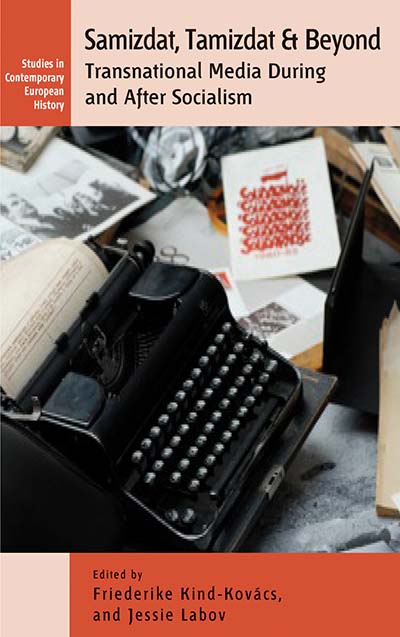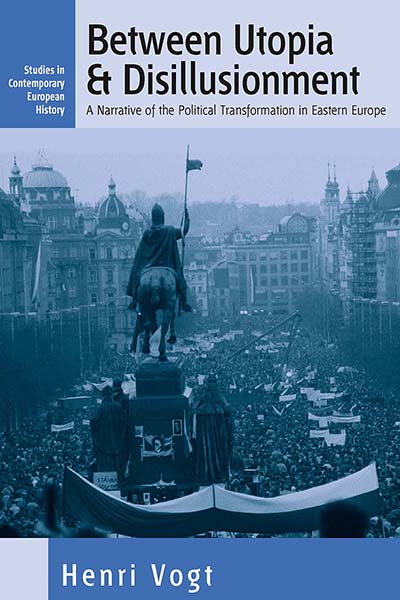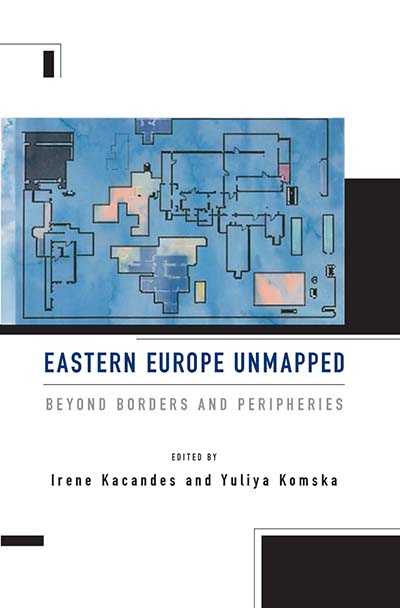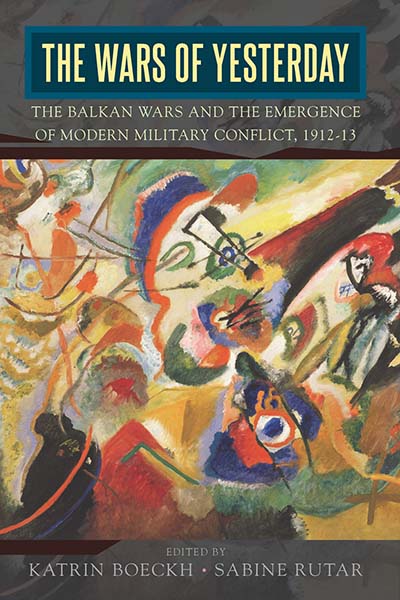
Series
Volume 13
Studies in Contemporary European History
See Related
History JournalsEmail Newsletters
Sign up for our email newsletters to get customized updates on new Berghahn publications.
Samizdat, Tamizdat, and Beyond
Transnational Media During and After Socialism
Edited by Friederike Kind-Kovács and Jessie Labov
380 pages, 6 illus., bibliog., index
ISBN 978-0-85745-585-7 $150.00/£115.00 / Hb / Published (March 2013)
ISBN 978-1-78238-918-7 $39.95/£31.95 / Pb / Published (April 2015)
eISBN 978-0-85745-586-4 eBook
Reviews
“The volume displays in exemplary fashion the entire spectrum of this dissident world; it would be great to see such well structured edited volumes like this one more often.” • Archiv für Sozialgeschichte
“[The editors] present a wide-ranging array of case studies of unofficial and oppositional media across the socialist bloc, which enrich the growing literature on samizdat while providing one of the first detailed accounts of tamizdat. Many chapters reconstruct the complex networks via which these media circulated to East European domestic audiences and, more important, to the transnational community that could offer theoretical and practical support for dissent outside the host countries. They evoke an almost infinite variety in the type and scale of such media circulation.” • Kritika: Explorations in Russian and Eurasian History
“These case studies will be invaluable to researchers seeking innovative approaches to the study of dissent, or those teaching courses on the subject who want to add something new and thought provoking to their syllabi.” • Russian Journal of Communication
"The volume is enlightening and innovative in many respects and deserves attention beyond the circles of regional specialists. Challenging received notions about the self-enclosed nature of communication and culture in Communistruled Central and Eastern Europe, contributions to the volume highlight the importance of transnational information flows within the region and across the Cold War divide." • European Journal of Communication
“Samizdat, Tamizdat, and Beyond offers a long-awaited rethinking of dissent at the grassroots level. Looking primarily but not exclusively to the Eastern Bloc, this volume skillfully stretches our understanding of samizdat to incorporate visual art, music, video, and the web. The editors bring together seemingly disparate samizdat ‘texts’ by placing them within the larger context of transnationalism, gender, and mass media. In so doing, they remind us that dissent is, first and foremost, a creative human endeavor, one that not only has a history but also a future.” • Paulina Bren, Vassar College
“The information and insights contained in this volume fill the gap in our knowledge about the vitality, diversity, and ongoing relevance of samizdat/tamizdat and alternative media not only in the post-Communist states represented here, but in emerging democracies in other regions of the world, e.g. the Middle East and Asia.” • Michael Long, Baylor University
Description
In many ways what is identified today as “cultural globalization” in Eastern Europe has its roots in the Cold War phenomena of samizdat (“do-it-yourself” underground publishing) and tamizdat (publishing abroad). This volume offers a new understanding of how information flowed between East and West during the Cold War, as well as the much broader circulation of cultural products instigated and sustained by these practices. By expanding the definitions of samizdat and tamizdat from explicitly political print publications to include other forms and genres, this volume investigates the wider cultural sphere of alternative and semi-official texts, broadcast media, reproductions of visual art and music, and, in the post-1989 period, new media. The underground circulation of uncensored texts in the Cold War era serves as a useful foundation for comparison when looking at current examples of censorship, independent media, and the use of new media in countries like China, Iran, and the former Yugoslavia.
Friederike Kind-Kovács is Assistant Professor in the Department of Southeast and East European History at Regensburg University.
Jessie Labov is Assistant Professor in the Department of Slavic and East European Languages and Literatures at The Ohio State University.




